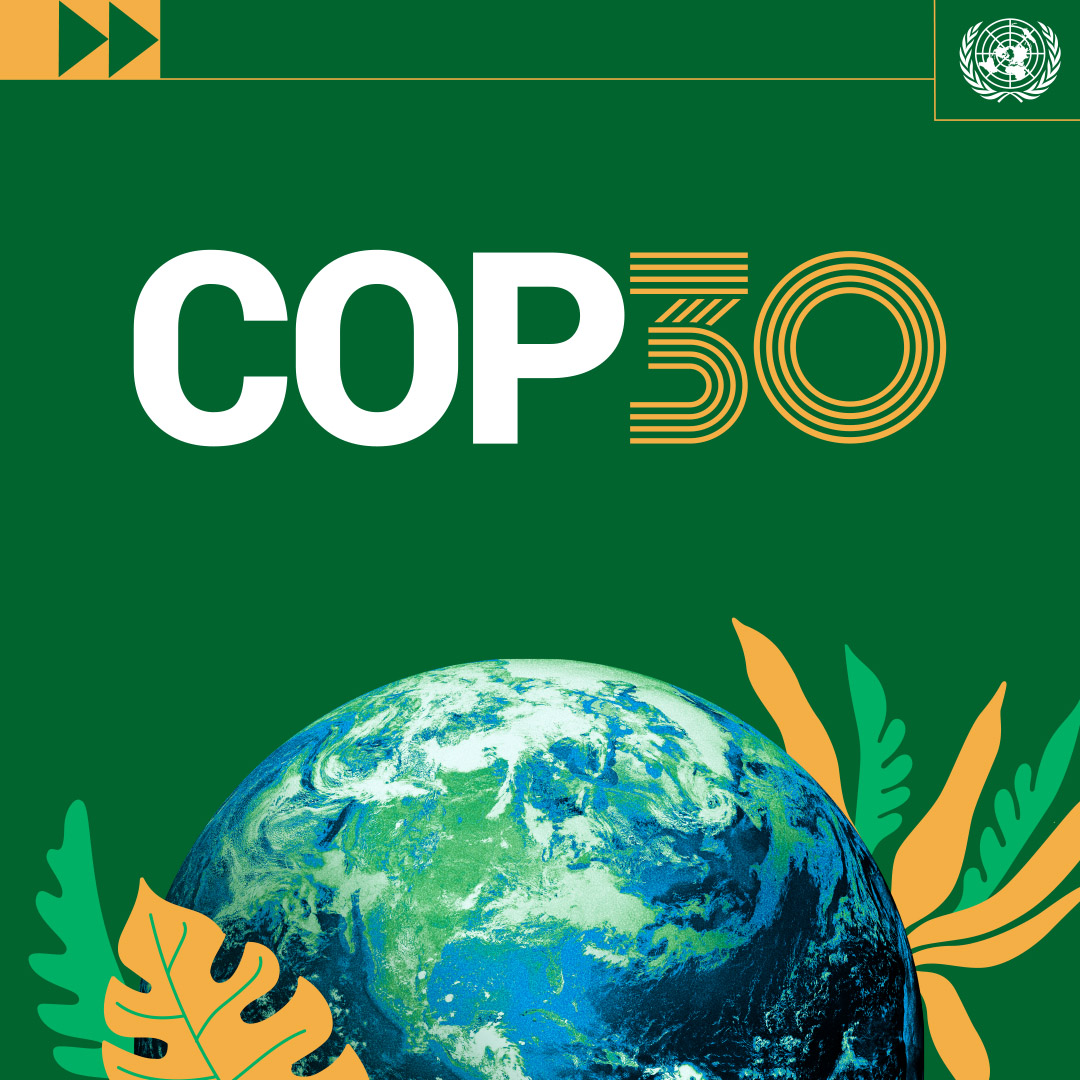ECLAC at COP30: economic instruments and multilateral cooperation for a just and sustainable transition
Work area(s)
During the conference in Belém, Brazil, the United Nations regional commission will present its work to advance the climate agenda as a driver of economic and social transformation.

The Economic Commission for Latin America and the Caribbean (ECLAC) will take an active role, together with its regional partners, at the 30th Conference of the Parties to the United Nations Framework Convention on Climate Change (COP30), held from 10 to 21 November 2025 in Belém, Brazil, under the global theme “COP30: the catalyst for a sustainable future.”
COP30 is a milestone for the region: hosted in the Brazilian Amazon, it marks the starting point for the implementation of third-generation Nationally Determined Contributions (NDCs).
In a complex geopolitical context, marked by relativism in the face of planetary crises such as climate change, biodiversity loss and pollution, ECLAC reaffirms its commitment to international cooperation, science and dialogue as central pillars for addressing these challenges in the region.
During the pre-COP30 leaders’ summit in Belém, held on Thursday, 6 and Friday, 7 November, United Nations Secretary-General António Guterres warned emphatically that “we have failed” to meet the goal of limiting global warming to 1.5 °C above pre-industrial levels. However, he noted that it may still be possible to temporarily exceed this threshold and bring temperatures back down to 1.5 °C by the end of the century.
“After decades of denial and delay, science now tells us that we are heading for a temporary overshoot beyond the 1.5 °C limit. Failure to contain global heating amounts to ‘moral failure and deadly negligence,’” he said, urging accelerated climate action, particularly through the phase-out of fossil fuels.
Latin America and the Caribbean, rich in biodiversity but also highly vulnerable to climate-change impacts, require articulated and ambitious responses. In this context, ECLAC supports the region’s countries in designing and implementing public climate policies, strengthening their capacity and leadership in the transition to low-carbon economies.
“We need bold and transformative policies that drive deep development and protect our common heritage and those who defend it. Our countries must focus both on growth and transformation, moving toward inclusive, low-carbon, high-technology societies that reduce structural gaps. And this must be done hand-in-hand with our communities,” said José Manuel Salazar-Xirinachs, Executive Secretary of the regional commission.
Two Key Reports for Regional Climate Action
At COP30, ECLAC will launch two relevant publications that synthesize its technical contribution to the region’s governments: Overview of Carbon Pricing Policies in Latin America and the Caribbean 2025: Analysis of their Effectiveness and Guidelines for Implementation and The Economics of Climate Change in Latin America and the Caribbean 2025: Climate Action to Overcome Development Traps.
Both documents will be presented on 15 November at high-level events.
The first event, focused on carbon-pricing policies, will be held from 13:15 to 14:00 local time in the Canada Pavilion and is organized by ECLAC and the Platform for Carbon Pricing in the Americas (CPA). Participants will include representatives from the Ministry of Finance of Brazil, the Ministry of Environment of Chile, the European Union, the UK Department for Energy Security and Net Zero, and the Special Envoy for Climate Change and Northern and Arctic Affairs of Québec.
On the same day, from 16:00 to 17:00 in the Spain Pavilion, the document The Economics of Climate Change in Latin America and the Caribbean 2025: Climate Action to Overcome Development Traps will be launched, with participants from the Development Bank of Latin America and the Caribbean (CAF), the EUROCLIMA Programme, and the governments of the Dominican Republic, Mexico and Panama.
Thematic Focus of ECLAC’s Participation
ECLAC’s contribution to COP30 is focused on six strategic pillars that shape its regional work agenda:
- Climate change economics and sustainable finance: strengthen the use of economic and fiscal instruments for the low-carbon transition.
- Carbon pricing and international cooperation: promote efficient and equitable emission-pricing mechanisms and take advantage of the opportunities offered by carbon markets in accordance with Article 6 of the Paris Agreement.
- Just transition and social inclusion: integrate criteria of equity, decent work and social justice into climate policies.
- Environmental governance and human rights: advance the implementation of the Escazú Agreement and integrate human rights into climate action.
- Resilient infrastructure and green productive transformation: promote sustainable investment in the region’s strategic sectors.
- Critical minerals for the transition: promote fair, responsible and sustainable mining.
Regional Commitment to Climate Action
ECLAC’s participation in COP30 reaffirms its role as a technical and political reference in the region, promoting the integration of climate action with economic development, social equity and environmental sustainability.
At a time when global challenges demand greater cooperation and joint solutions, ECLAC advances multilateralism, solidarity and climate justice as foundations for a just transition that leaves no one behind.
Through its reports, proposals and dialogue spaces, the Commission will continue to promote integrated public policies, innovative economic instruments and regional cooperation, supporting the countries of Latin America and the Caribbean in building a more productive, inclusive and low-carbon development model.